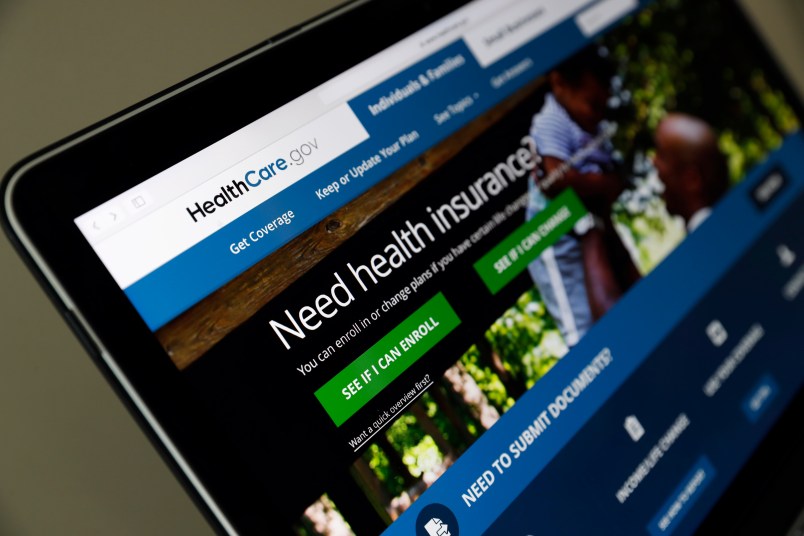A report on HealthCare.Gov enrollment released by Centers for Medicare & Medicaid Services on Thursday showed the final number of sign-ups on the federal Obamacare exchanges to be about 100,000 fewer than the numbers released last week.
According to the final HealthCare.gov enrollment report released Thursday, 8.7 million people signed up for or re-enrolled in Obamacare plans on the federal exchanges. That number does not including enrollees in states that operate their own exchanges. CMS said it would be releasing a more detailed report on this year’s enrollment period in March that would include the data from state-based marketplaces.
Thursday’s numbers were down from the 8.8 million enrollees reported last week, a shift due to people who made cancelations to their plans, either in active selection or auto-enrollment, a CMS official said.
Thursday’s numbers also included those who enrolled in the final three hours of West Coast time, as well as enrollees who left their information with call centers before the deadline and were allowed to enroll after, according to a CMS official. Both types of numbers were not included in last week’s report, so it’s not entirely clear how many people canceled their plans when comparing the two sets of data.
About a half-million fewer people signed up for Obamacare plans on the federal exchange this year compared to last year — an enrollment pattern that surprised health care analysts and observers in light of the Trump administration’s neglectful if not outright hostile approach to implementing the Affordable Care Act. President Trump on multiple occasions declared the law dead, while the Department of Health and Human services significantly scaled back its outreach efforts.
Trump also halted insurer subsidies that were subject to a legal challenge, a move he said was an effort to force Democrats to help him repeal the Affordable Care Act. Ironically the maneuver actually resulted in a large swath of Obamacare enrollees having to pay less out of pocket for premiums, due to how subsidies for low-income consumers are structured. However, some enrollees, particularly those who aren’t eligible for premium subsidies, did see their rates spike as a result of the move.







Well since the individual mandate is gone, there is no reason to sign up for health care without getting a penalty.
Universal health care is here to stay. The next Dem administration will be able to expand subsidies, implement medicare buy in, implement public option and put in more regulation to create a true national market for insurance and full coverage.
At this point in the game, no one cares about the penalty. It never mattered, really.
Has Comrade Cockholster tweeted about this “victory” yet?
I know many heathy young adults (friends of my sons) who recently went through the process of acquiring healthcare at age 26 when they could no longer be covered by their parents. In informal discussions with them, they’ve all come to realize that it makes sense to have insurance. Their reasons are varied - one realized how much his routine prescriptions would have cost without coverage, another broke his leg in a bicycle accident and saw in print what he would have paid without insurance, etc. They aren’t going to be quick to give up their insurance and losing the mandate isn’t going to have a large impact. I do worry that rising premiums might make it unaffordable for some who are carrying student loan debt and working in some fields (humanities, arts, public policy) where starting salaries are low.